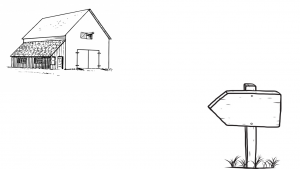The UW Farm has only ever been a place of passing through for me. I had been there once or twice for Dawg Daze events my first year, and another time with the food co-op group on campus. It was great to become more intimate with such a collaborative space, which I was able to do with my action project group. A small gathering at the farm was an unexpected but impactful way to connect deeper with the farm, as well as with other individuals interested in discussing food politics.
Our action project was structured in a unique way: each member (4 in total) lead a short discussion on a topic that was of particular interest to them. I talked about commodity chains, and more specifically about the chain of soybeans. I asked my group mates and the event attendees to consider the Brazilian “tropical soybean” and how the original Chinese soy plant had evolved. More importantly, I learned about a wide array of topics through the discussions that my group members lead. I had an enrapturing conversation about violent food systems, and the ways that capitalism and power politics inherently create violence in food production all around the world. I learned about sustainable farming practices–as well as defining what that actually means, and ways to better establish our knowledge about sustainable farming. Last but not least, I learned about fishery science and their relation to global food politics, in the way of producing fish similar to how we produce livestock. We also lead a few activities, each pertaining to a topic we would discuss at the event. Included below are a blank coloring page that I crafted to help attendees design their “dream farm”.

I believe that the way our group was structured allowed for optimal integration and collaboration between both the group members as well as those who attended the event. While at first I was disappointed at our overly-casual organization, I quickly realized that I was thankful and wouldn’t have hosted the event any other way.
